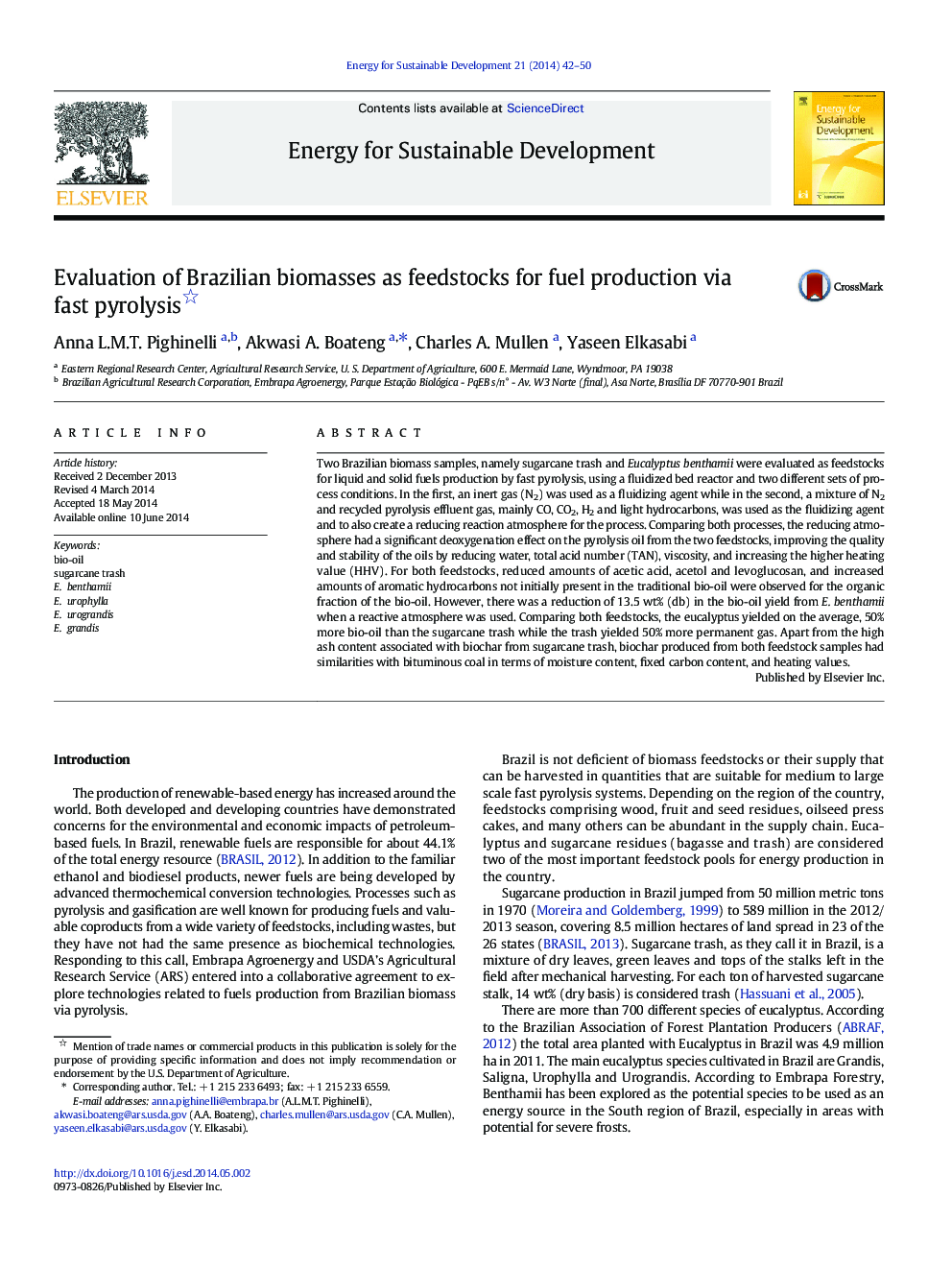| Article ID | Journal | Published Year | Pages | File Type |
|---|---|---|---|---|
| 1046916 | Energy for Sustainable Development | 2014 | 9 Pages |
•Recycling of pyrolysis gases improved quality and stability of the liquid fuel.•Eucalyptus was more suitable to produce bio-oil and sugarcane trash to produce gas.•Sugarcane trash bio-oil had a high concentration of aromatic hydrocarbons compounds.•Eucalyptus bio-oil had a lower viscosity and nitrogen content.•The biochar samples had similarities to the bituminous coal.
Two Brazilian biomass samples, namely sugarcane trash and Eucalyptus benthamii were evaluated as feedstocks for liquid and solid fuels production by fast pyrolysis, using a fluidized bed reactor and two different sets of process conditions. In the first, an inert gas (N2) was used as a fluidizing agent while in the second, a mixture of N2 and recycled pyrolysis effluent gas, mainly CO, CO2, H2 and light hydrocarbons, was used as the fluidizing agent and to also create a reducing reaction atmosphere for the process. Comparing both processes, the reducing atmosphere had a significant deoxygenation effect on the pyrolysis oil from the two feedstocks, improving the quality and stability of the oils by reducing water, total acid number (TAN), viscosity, and increasing the higher heating value (HHV). For both feedstocks, reduced amounts of acetic acid, acetol and levoglucosan, and increased amounts of aromatic hydrocarbons not initially present in the traditional bio-oil were observed for the organic fraction of the bio-oil. However, there was a reduction of 13.5 wt% (db) in the bio-oil yield from E. benthamii when a reactive atmosphere was used. Comparing both feedstocks, the eucalyptus yielded on the average, 50% more bio-oil than the sugarcane trash while the trash yielded 50% more permanent gas. Apart from the high ash content associated with biochar from sugarcane trash, biochar produced from both feedstock samples had similarities with bituminous coal in terms of moisture content, fixed carbon content, and heating values.
